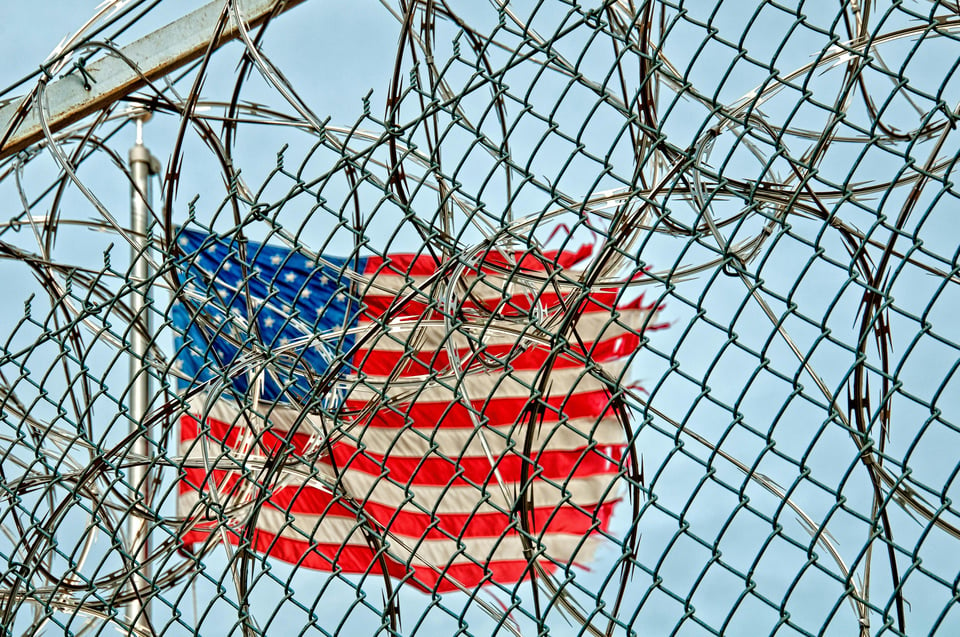In Defense of Immigration (or Billionaires Are the Real Problem)

Immigration is the animating issue of modern US politics and the driver of far-right movements in Europe. The President entered the political scene with the Birther Movement, claiming his predecessor in the Whitehouse was not born in the US, and thus an immigrant and ineligible to hold office. He began his 2016 campaign descending the escalator at Trump Tower vilifying Mexican immigrants and won his first election pledging to build a “big beautiful wall.” His second campaign began at the RNC with an arena full of supporters holding up signs reading “Mass Deportation Now.”
The administration’s current assault on the citizens of Portland is ostensibly about immigration enforcement and follows similar actions in Chicago and Los Angeles. In response to anti-immigration fanaticism, the moderate (and wrong) position has become to join the chorus in attacking immigration and to offer a watered-down version of the same policies. This is the path VP Harris pursued in her doomed campaign and is mainstream dogma among Democrats in the US.
Unlearning that the moderate position is prudent or virtuous is one of the most important intellectual projects of my adult life and highlights the problem with reflexive moderates. They lack actual moral grounding and approach every debate like Goldilocks, in search of their perfect 112 degree porridge. Micheal Hobbes framed the dynamic well: The fascists say “let’s murder 10 million people.” Their opponents correctly say “no, murder is wrong.” The rudderless moderate decries the “extremism on both sides” and we end up compromising on only murdering 5 million people.
The administration is wrong on immigration and moderates are their enablers. I am unwilling to surrender the position that:
Immigration is a net good for the US
Immigrants and immigration enrich the country culturally and economically
The current immigration enforcement action is an inhumane abomination, being carried out by masked thugs, and represents an abandonment of the professed values of the country
Perhaps I am biased because immigration has been a constant in my life. But I’d rather be biased and correct than unbiased and incorrect.
I’m an immigrant.
In 2019, I left my home country and moved to the UAE for better work opportunities and the prospect of a more peaceful and sustainable life.
My childhood is bracketed by two waves of immigration that shaped the demographics of large portions of the city of Tacoma and the Western US.
My micro-generation, the dying days of Gen X and the first wave of the Millennials, coincides with the arrival of a large number of refugees from conflicts in Southeast Asia—particularly Vietnam and Cambodia. These so-called “Boat People” started arriving in the Northwest while I was in elementary school in the mid-80s.
Beginning in 1994, around ninth grade for me, after the passage of NAFTA, rural Mexican farms were devastated by the deluge of subsidized American commodities: corn, wheat, soybeans, and rice. These farmers began migrating to Mexican cities looking for jobs and when sufficient work wasn’t available, many began migrating north to the US. For the record, that wave of immigration peaked somewhere around 2007, just as I was entering the teaching profession. But you wouldn’t know that by reading the headlines in the US media.
I feel a closeness to each of these immigrant populations. Hope and I have visited Cambodia and Vietnam in Southeast Asia and relished our time in each. We may love Mexico even more and have made at least five trips South of the Border. I can say without an ounce of hesitation that the presence of these immigrant populations has enriched my life and the culture of the people in the Northwest.
The notion that the rain-jacket-donning, unseasoned-food-eating masses of the wet AF, Scandinavian-coded Pacific Northwest would be better off without immigration is absurd to me—and should be to anyone capable of stringing together a coherent sentence.
Yet somehow in our odd political moment, large numbers of Americans, particularly of the more alabaster persuasion, have been convinced by a billionaire that the cause of their economic frustration and stagnation is not oligarchy or corporate consolidation but instead the working-class immigrant family next door.
For the life of me, I can’t figure out how we got here.
This is a long and roundabout way of introducing my topic over the next few newsletters: billionaires (and their monopolies) are the problem.
Pulling from recent Pew data, I am going to work through the top issues Americans say are the most important to them and make the case that the root cause of each is billionaires and corporate consolidation.
Immigrants aren’t the reason wages are stagnant, rents are skyrocketing, or groceries cost more every week. That blame lies squarely with billionaires. They’ve convinced people to punch down at their neighbors instead of looking up at the handful of men hoarding more wealth than entire nations.
So here’s a spoiler alert for next week: the family next door isn’t the problem. Jeff Bezos and the Walton Family are.